Self-Employed Mortgage with One Years Accounts
- You'll experience an unrivalled customer service
- We are an independently owned brokerage offering first charge mortgages from the whole of the market.
- You can contact us 24/7, we're always available to help
Whats on this page
Home » Self-Employed Mortgage » Self-Employed Mortgage with One Years Accounts
Self-Employed Mortgage with One Years’ Accounts
Is it possible to get a mortgage if you’ve only been Self-Employed for one year?
Although you will most likely be limited in choice of lender and therefore the interest rates available, it’s possible to get a mortgage with just one year of accounting history, if you’re Self-Employed. The majority of Mortgage Lenders, especially most of those on the high street will ask Self-Employed mortgage applicants to provide three year’s worth of accounts, however, with the right lender, twelve months of certified accounts can be enough.
As the availability of Mortgage Lenders offering mortgages in these circumstances are quite low, you should expect the interest rates to be less competitive and the fees to be higher.
How do I prove my income with one years accounts
Proving your income can be more challenging when you only have one year of accounting history available, as most lenders will use an average income gained over two to three years. To strengthen your application when you only have one year’s accounts available, you may need to provide additional proof that your business is financially stable. This could include your business planning documents, particularly projected future income and your plans for growth.
As a Self-Employed applicant, the income that lenders will be willing to consider in support of your application will vary based on the type of Self-Employed activities you participate in. For example:
Limited Company Director
If you own a company, your personal salary and dividends that you pay yourself from the business turnover will be used as your income. In rare cases, some lenders will agree to look at net business profits also. In order to prove this income, you will need to provide:
- Finalised accounts, certified by a qualified accountant for your first year of operation
- SA302 for the same business year
- Tax Year Overview from HMRC
- Business banking statements
Sole Trader/Freelancer
As a sole trader, your personal annual income will be used to calculate your mortgage. If you have any additional proof that your income will continue, this will be helpful to back up your application if you only have one year of accounts available. Some professions can use their professional qualifications for this, such as Doctors, Lawyers etc. To prove your income, you will need to supply
- SA302 form for the past year
- Tax Year Overview from HMRC
Partnership
In order for the income from your share of a business partnership to be considered in support of your mortgage application, you need to own at least 25% of the company. Your share of the net profits will then be used in the mortgage calculation. To prove this you will need to provide:
- SA302 form
- Tax Year Overview from HMRC
- Business bank statements
How much can I borrow?
Your employment status should theoretically not affect this, however, lenders may reduce their lending to mitigate the risk, if you can only provide one year of accounting history. The average mortgage applicant can expect to borrow four and half times their annual income, so long as they have a strong credit score and can adequately prove their income.
What deposit will I need?
Mortgages usually require around a 10% deposit. This does not change based on your employment type, however, as a Self-Employed applicant with a shorter trading history, you may improve your chance of acceptance if you can offer above the minimum deposit.
The Mortgage Guarantee Scheme, which was launched in April 2021 means that it is now possible for creditworthy applicants to obtain a 95% mortgage, which lowers the deposit requirement to 5%. Bear in mind, however, that this will increase interest rates.
Do I have access to the Help to Buy scheme if I’m Self-Employed with one years’ accounts?
Home ownership schemes are available to Self-Employed applicants and whilst it may be more challenging to find a lender willing to offer this when you have less proof of income, this shouldn’t be any more difficult than for other types of mortgage.
The Help to Buy scheme allows you to borrow up to 20% of your property value from the government(in the form of an equity loan), to use against your deposit requirement. You will need to provide the first 5% deposit and with the government loan on top, you only need to borrow 75% of the property value from the Mortgage Lender. in order to buy. The 20% equity loan is interest free for the first five years.
How can Yellow Brick Mortgages help?
Here at Yellow Brick Mortgages, we specialise in helping Self-Employed borrowers. If you have a shorter trading history, we can access those specific Mortgage Lenders who are able to consider your circumstances. This means that we can help you find a competitive deal and prevent you from wasting your time applying to lenders who are unlikely to offer you a mortgage.
YOUR HOME MAY BE REPOSSESSED IF YOU DO NOT KEEP UP REPAYMENTS ON YOUR MORTGAGE.
Speak To An Expert
Our highly experienced Advisers are ready to help you with either buying or remortgaging a home, protecting your property and lifestyle along with saving you time and effort, ensuring you have a competitive deal right for you.


Self-Employed Mortgage With One Years Accounts (Part 2)
Alison Davis and Carla Corbisiero are back for part two of our podcast on self-employed mortgages with one year’s accounts.
Podcast approved by The Openwork Partnership on 02/01/2024.
I was declined because I’ve only been trading for one year – could I still get a mortgage?
Quite a few lenders do request a minimum of two years accounts, so if you’ve gone to one of those, you will be declined. But a mortgage broker can search the market and source a lender for you who will accept those who have only been trading for one year.
Will the nature of my business affect my mortgage?
The type of industry can impact the overall term of the mortgage – for instance, if you’re a scaffolder, we couldn’t really see you on the roof at age 72. So it would depend on the job description and the plausibility of working later in years.
That’s the only impact – the term and how long your job would be plausible.
Can I get a mortgage with one year’s accounts and bad credit?
It will depend on individual circumstances and how bad that credit is. We would probably need to see the credit file and marry it up with the lender’s particular criteria.
For example, one lender may state no missed payments in the last six months. If you’ve had a missed payment in the last eight months we could still put you forward. So it really depends on what the bad credit was.
What if I want to borrow more than would generally be offered? Can I get a 95% Loan to Value mortgage with just one year’s accounts?
The first thing that we would do with anybody looking for a mortgage is look at an affordability assessment. That looks at your income, outgoings and whether you have any commitments like loans or credit cards.
Once we’ve understood your maximum borrowing we would then do an Agreement in Principle which would then confirm if your credit file would allow borrowing to 95%.
It can all look very different depending on the lender we go with. But the short answer is yes, you can get a 95% mortgage, but you can only borrow what’s affordable according to the lender’s calculations.
Is it possible to remortgage with one year’s accounts?
Yes. It doesn’t matter whether it’s a remortgage or purchase – we do have lenders that will consider you as long as you meet affordability requirements for the requested loan amount.
Can I self certify my income or do I need accounts?
Unfortunately the days of self-certing have gone. You would need to prove your income with an SA302 supported by an account overview. The account overview just confirms that you’ve paid any tax due.
You could also have an accountant’s certificate. That can apply for a sole trader or for a limited company – but it would need to be completed by the accountant. Your full accounts can also be used. So as long as you’ve got those documents to prove your income we can certainly move forward and look at your mortgage options.
Is it best to use an accountant?
If you’re confident in doing your own accounts then they are perfectly acceptable. Lenders usually request an SA302 together with a tax year overview.
The benefit of an accountant is that you wouldn’t have to provide your full accounts. They can do something called an accountant certificate, which is usually a one or two page document where they fill in your figures and send it back.
Lenders also like to see supporting business bank statements. They want to see the money regularly going in and that your outgoings are sustainable. If your accountant has a certain qualification specified by the lender, they can provide a certificate and no additional documents are required.
When it goes through the underwriting process the lender may request additional documents, but generally an accounting certificate does not need to be supported by business bank statements. So it could be a smoother process. It’s a lot easier for the client because we can deal directly with the accountant.
Do I lose my trading history if I change from sole trader to limited company?
It depends. We do have lenders that are happy to review on a case-by-case basis. Let’s say we’ve got an applicant in one industry that has become a limited company in a new and different industry. That’s not going to be seen very favourably.
But if you’re a hairdresser as a sole trader and you move across to a limited company; you’ve been trading for the last three years and it’s not going to impact your clients or your income, that can be considered. It’s always on an individual basis and it would have to be agreed by the lender and the underwriter.
Are specialist self-employed mortgage lenders regulated?
If it’s a residential mortgage, then yes. The FCA regulates all homeowners’ residential mortgages and lifetime mortgages. This includes equity release and products for older borrowers. The Financial Conduct Authority does not regulate Buy to Let mortgages, though.
Have you got anything else regarding self-employment with one year’s accounts?
I would say to any self-employed person, just make sure your business is sustainable – that’s all the lender really is looking for. They want you to get a gradual increase in income every year, or if there’s a dip, they want to understand the reason for that. They just want to know that you’re good for the money and your income and business is sustainable.
Make sure you keep your business bank statements and that they reflect the accounts that you put through the end of the year. Then, when the lender wants to review the sustainability it’s all very clear.
YOUR HOME MAY BE REPOSSESSED IF YOU DO NOT KEEP UP WITH YOUR MORTGAGE REPAYMENTS.
Some Buy to Let mortgages are not regulated by the Financial Conduct Authority.
For specialist tax advice, please refer to an accountant or tax specialist.
Approved by The Openwork Partnership on 02/01/2024.
Useful Links
- Self-Employed Mortgage
- Documents Needed for a Self-Employed Mortgage
- What Income do Mortgage Companies look at Self-employed
- Self Employed Mortgage with One Years Accounts
- Limited Company Directors
- Joint Mortgage Self-Employed
- Joint Mortgage – One Self-Employed Applicant
- Buy to Let Self-Employed Mortgage
- Contractor Mortgage
Why Yellow Brick Mortgages
- Unrivalled customer service
- We are an independently owned brokerage offering first charge mortgages from the whole of the market.
- Available 24/7 to ensure we are there to help when you need us.


